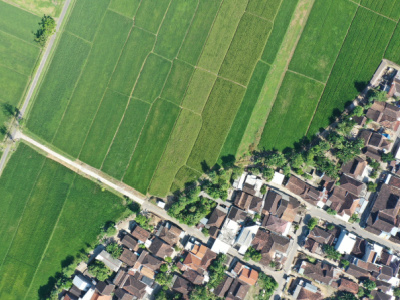How Do Zoning and Land Use Laws Affect Real Estate Developers?

When it comes to real estate development, navigating the complex web of zoning and land use laws can be difficult. However, it is crucial to understand how these laws may affect a developer’s plans to use a property, make improvements, and sell or lease property to commercial tenants or other parties. Zoning laws dictate how properties can be used and developed in a specific area, ensuring that land is used appropriately for its intended purpose while being compatible with neighboring properties.
Zoning laws regulate the use of land within a municipality or jurisdiction, dividing areas into different zones such as residential, commercial, industrial, and agricultural. Land use laws may encompass a broader range of regulations that govern how property can be utilized based on factors like density requirements, lot size restrictions, setback requirements, historic preservation guidelines, and environmental impact assessments.
The impact of zoning and land use laws on real estate developers cannot be understated. An attorney with experience in commercial real estate law can provide invaluable assistance in addressing these issues, helping with matters such as:
Determining Suitable Property Use
Zoning codes outline what types of activities are permitted on certain parcels of land. For example:
- Residential zones may only allow single-family homes or multi-unit dwellings.
- Commercial zones may permit retail stores or restaurants.
- Industrial zones may allow manufacturing facilities, warehouses, or other similar uses.
Before purchasing a property or developing plans for new construction or renovation projects, real estate developers must assess local zoning ordinances to ensure they comply with existing regulations.
Negotiating with Local Authorities
In some cases where a developer wishes to deviate from existing zoning regulations, such as by constructing taller buildings than allowed, negotiations will need to take place between the developer and relevant local authorities like planning boards. The outcome could result in special permits being issued by granting variances from standard rules. Representation by an attorney can be crucial during these negotiations, and a lawyer with experience in local laws and regulations can help ensure that a developer will receive permission to use property as intended.
Obtaining Required Permits
In addition to complying with zoning laws, real estate developers must also navigate the permitting process. This involves submitting applications to obtain approvals from various government agencies prior to commencing construction or development. Permitting requirements can cover a wide range of factors, such as:
- Building codes and standards
- Fire safety regulations
- Environmental impact assessments
- Historic preservation considerations
The process of applying for permits can be time-consuming and costly, but it is essential for ensuring compliance with all applicable laws and regulations.
Environmental Impact Assessments
In recent years, environmental impact assessments have become an increasingly important aspect of land use planning. Developers need to conduct studies regarding potential effects on air quality, water resources, noise pollution levels, and other factors to ensure that they are complying with local ordinances and state or federal requirements.
Historic Preservation Considerations
If a developer wishes to work on or near a historic site or building that may be protected by a local or federal designation, such as being listed on the National Register of Historic Places, additional restrictions may apply. Proper permits from relevant authorities will be needed so that changes do not negatively impact these historically valuable structures.
Navigating Density Requirements and Setback Regulations
Density requirements govern how many dwelling units per acre may exist within certain zones, while setback regulations determine the minimum distances between buildings and property boundaries. These rules play a major role in determining what type of development is viable on specific properties. For instance:
- A high-density residential project might require one unit per 1/4 acre.
- Commercial developments typically have different setbacks than residential ones.
Real estate developers need to carefully analyze these factors when evaluating potential investments and plans for the use of different properties.
Contact Our Naperville Commercial Real Estate Attorney
If you are a real estate developer facing challenges related to zoning or land use laws, it is crucial to consult with an experienced attorney who understands the best ways to address these concerns. At the Gierach Law Firm, our DuPage County zoning and land use lawyer can provide guidance and legal representation throughout a development project. We will work with you to make sure all legal issues are handled correctly, ensuring that you can achieve your goals. Contact us at 630-756-1160 to arrange a consultation and learn more about the services we can provide.
Practice Areas
Archive
+2018
+2016
Please note: These blogs have been created over a period of time and laws and information can change. For the most current information on a topic you are interested in please seek proper legal counsel.














